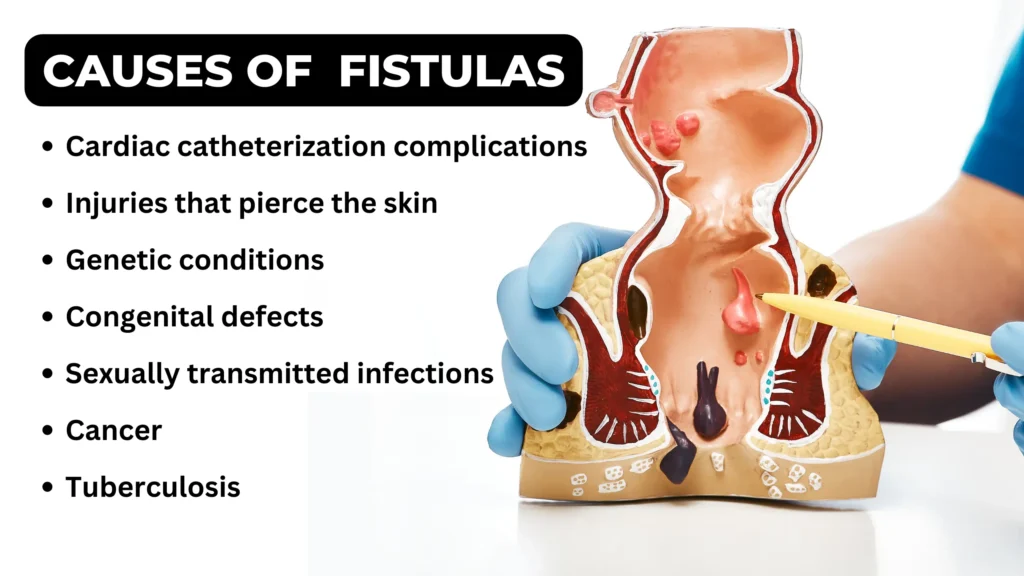Best Quality Treatment
Fistula Treatment Without Leser Treatment
We will give you best services Most advanced treatment for painless piles, fissure, fistula by Sandhyashi Hospital
What is Fistula Disease
Fistula disease, also known as anorectal fistula, is a condition in which an abnormal connection develops between the rectum or anus and the skin surrounding the anus.
This condition usually occurs as a result of an infection that leads to inflammation and abscess formation within the anal glands.
The abscess eventually bursts, creating a tunnel-like passage called a fistula.
Symptoms Of Fistula Disease
Fistula disease is an abnormal connection between two internal organs or between an organ and the skin.
It is commonly caused by injury, infection, surgery, or inflammation and can occur in various parts of the body.
Symptoms of fistula disease include pain, swelling, discomfort during bowel movements or urination, discharge of pus or blood, fever and chills, abdominal distension, nausea and vomiting.
Treatment options may include surgery to repair or remove the affected tissues, antibiotics to treat infections, or medication to manage pain and inflammation.
Fistula disease presents a range of symptoms that can vary depending on the severity and location of the condition.
Common signs include persistent pain or discomfort in the affected area, as well as swelling or inflammation.
Couses Of Fistula Disease
- Conservative treatments may include medications that help calm inflammation and infection in the area around the fistula.
- Fistula treatment usually involves either surgical or conservative management approaches.
- In some cases, a combination of both conservative and surgical approaches may be required for optimal results.
- Avoiding constipation or diarrhea may include lifestyle modifications such as increasing dietary fiber intake and regular wound care to promote healing.

Can Fistula Disease Be Cured?
Fistula is a painful and debilitating condition that occurs when an abnormal connection forms between two organs or tissues in the body.
While fistulas are difficult to treat, they can be cured with appropriate care and management.
The success of treatment largely depends on the type, location, and severity of the fistula.
Treatment options may include draining the abscess that is causing the fistula, repairing damaged tissue, or creating a bypass around the affected area.